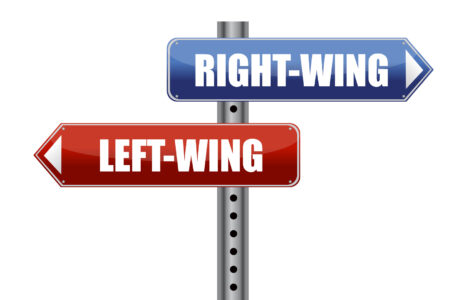
Prime Minister: We urge you to write to President Bush. Don’t be angry, be cool””otherwise he won’t read it. Anyway, he already knows you’re annoyed because of softwood, fish and wheat. He’s squeezing you to get benefits he can pass on to important domestic con- stituents, and he figures””more or less accurately””that you can’t do much about it. But if you write smart, you can show him how cooperation at the top during North American his- torical watershed moments has short-circuited powerful lob- bies, removed constitutional stumbling blocks, and allowed both nations to make independent and significant move- ment toward the achievement of vital national interests. It’s been going on for 250 years; at least it has done so when either or both of our countries has leadership bold and imag- inative enough to see the possibilities for gain hidden in every crisis. Tell him to remember FDR and Mackenzie King, George Washington and Lord Dorchester, Reagan and Mulroney, Peel, Theodore Roosevelt, C.D. Howe.
In the early years, Canada was an instrument of European strategies to frustrate American growth. You may hear echoes of those years when some of your own advisors suggest Canada should frustrate American aims even when it serves no purpose north of the border. The actions Canada took at times of American crisis certainly paid off for our overseas masters in the past:””the French alliance with Indians during their war against New England helped define what would become the border; the French presence in Canada, guaranteed by the subtle Lord Dorchester, kept the North different enough to prevent the continent from unit- ing in rebellion; George III’s open door for the Tories during and after the American war of independence helped prevent subsequent expansion northward;Lord Peel’s support for the Hudson’s Bay Company in the Oregon Territory thwarted America’s northwesterly expansion.
But things changed in the 20th century. As Canada came into her own, we more and more began to capture for ourselves the payoffs from cooperation or at least close asso- ciation with the United States. How could it be otherwise? Even the proverbial men from Mars could tell that Canada is inextricably connected with the United States, part of a United North America: At night, the lights that mark the border stretch east and west right across the continent, but, except for a few solitary northerly beacons, they don’t reach much more than 100 miles to the north. Even those out- posts mark areas where continent-feeding industries like mining, energy production and transportation routes con- nect to the south, or where continental military defense lines are strung.
Finally, remind Mr. Bush that the United States profits tremendously from the personal diplomacy afforded by wartime alliances with Canada. Security giveaways such as Ogdensburg, Hyde Park and NORAD illustrate the potential for mutual gain in times of crisis. The current geopolitical strife, like those of world wars past, is a window of opportu- nity. In all previous cases a small step for the Americans has been a giant leap for the Canadian national interest and identity. Spin it that way. The world needs a champion but is has enough holier-than-thou posturing. Leave the Ameriphobia to the Europeans. You of all people, a self- made man, should not fear the middle-class values that make the Americans (and Israelis) a fashionable pariah in aristophilic Europe.
The North American way is one of peacetime pluralism and wartime convergence. Now that we have brought this to your attention, why don’t you relieve Mr. Bush’s worries about the degree of our support in the current crisis? Remember, in Texas politics, one good turn deserves anoth- er. Put softwood, wheat and fish in the context of North American unity.
Here’s a draft you might consider:
Dear George,
It seems that our countries haven’t been getting on quite as well as they should lately. You have put me in quite an unexpected predicament. I never thought that I would be in a position of fighting for more free trade with a market-trust- ing Texan, but in the last few weeks I have been disappointed time and time again. It broke our hearts up here in Canada when we heard about the duties on our softwood and it seems likely that we’re in for it with the wheat and fisheries, too. Now, I am not writing to complain. I understand the spot you’re in with Mr. Hussein and Israel and the war and all. It would be naïve to expect you to be thinking about lumber at a time like this, but this is an important time to consider our relationship.
You see, North American integration, which you must agree has always been tremendously beneficial, does not move forward by itself. It is a step-wise process, and accom- panies moments of unusual executive power in Washington.
From the beginning of the Great War to the end of the Cold War international conflict provided the requisite foreign and domestic pressures for meaningful, institutional linkages between Canada and the United States. Your country partici- pated in many large-scale conflicts in the 20th century, and more often than not, Canada was at your side. Each instance of wartime convergence was marked by a giant step toward economic interdependence. This has paid off for both of us.
Economic convergence is good. Sure, we Canadians depend much more on American trade and capital than you do Canadian, but your predecessors, from Teddy Roosevelt to your predecessor””and certainly including your father, who was also the father of NAFTA””recognized the benefits of North American integration. We are your largest trading part- ner. We share your culture, language and normative sensibili- ties. We have, however, built a brand image for ourselves in the international community as being many things that America is not. This is what we have to offer as our part of the bargain.
Canada has soft power. We may not have the material capabilities to justify our position in NATO and NORAD, but we have something you do not. Something you need more now than ever before. Of course I speak of Canada’s reputa- tion as ”œthe peacemaker nation,” a distinction which trans- lates into credibility in the supranational clubs you will need to win over to pursue your campaign against terror. Working with me instead of Tony Blair makes more sense. Canada is a more logical ally in the present conflict than even the United Kingdom. Our support is more compelling and our integra- tion more complete, and we have a strong historical justifica- tion for working together.
Operation Anaconda saw Canadians at your side in front- line combat for the first time since the Korean War (another moment of convergence). We put our men and money on the line to helped rout the Taliban. We shared responsibilities for the direction of that battle, something I am suggesting you and I do for the duration of the conflict. But even as our men and women in uniform fought in joint operations for the first time ever, the anti-dumping and countervailing duties on soft- wood lumber were announced. Perhaps regional trade dis- putes and international troop deployments seem like apples and oranges to you. But our two countries have a tradition of domestic economic harmonization in wartime that goes at least as far back as World War II when C.D. Howe, consistent with the Hyde Park Declaration between our predecessors, organized wartime production on a north-south axis.
For whatever reasons, the ”œWar on Terror” has not fit this pattern. Canadian troops could lay down cover fire for the Marines in Kandahar, but we received no political cover in Washington. Our appeals to economic logic and trade law were proven weaker than the special interests of American lumber producers regarding the dispute. The lumber produc- ers may have represented greater domestic rewards, but I invite you to consider the conflict in Israel and the coming war in Iraq in your cost-benefit analysis. Economic integration involves the full spectrum of goods and services that move across the border, including gas, electricity and oil. Dick Cheney mentions Canada more frequently than any other supplier in his recent report on energy policy.
Canada can be a partner in American peacemaking in the Middle East and elsewhere. I know that you don’t believe in nation-building””maybe for good reason, since a superpower has so much prestige at risk. But, we Canadians do believe in it. We do it well, and if our efforts fail, the strategic conse- quences are much less. The perceptual politics of conflict res- olution and the ongoing prosecution of the war on global ter- rorism make Canada a far more useful ally than the lumber cartels of Washington state. Unfortunately for both of us, I can do very little to help in your future war efforts while locked into the paradiplomatic stasis of a peacetime relationship. I have many domestic issues to contend with, and it has only become more difficult for me to maintain public support in Canada for your military endeavors. A protectionist stab at Canadian wheat will make it impossible for me to deliver any significant diplomatic cover for your policies in the ongoing war effort.
We both realize, all our citizens do, that our borders must be made secure. A common North American security perime- ter is a logical step toward integration, like NORAD before it. A common frontier has the capacity to integrate our nations while guarding against common enemies.
Please consider taking steps to reestablish the classical North American wartime relationship. The future of interde- pendent continental development depends on it. Man to man, George, we both have our nagging domestic special interests that the day-to-day politics of our jobs forces us to contend with. I have lumber. You have steel. And we both think about elections. But history shows that at watershed moments in our shared destiny bold leadership can see to the horizon of our national interests. We’d make a great team.
Your friend in peace and war,
Jean







